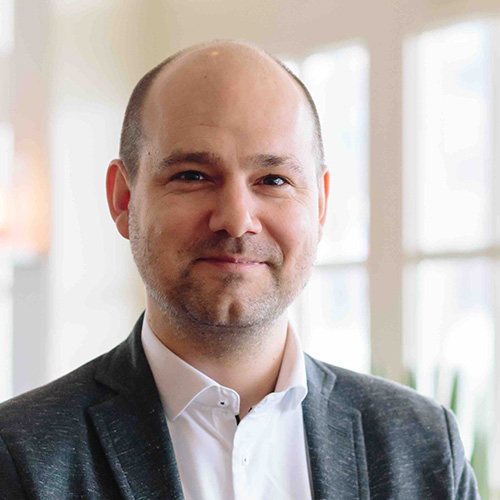FUNDRAISING IN THE COVID-19 WORLD
Addressing SOME COMMON QUESTIONSThe COVID-19 pandemic quickly swept up the entire world and is now leaving long-lasting effects to every aspect of life. How has this global crisis affected international development work? What can fundraisers prepare to deal with the new reality? Here are Han’s answers and advices to some of the common questions and concerns about the current situation. This is a part of our Q&A series with Han. You can watch the entire recordings on our YouTube channel!

To what extent is COVID-19 affecting the fundraising market? What can we do to prepare for similar disasters in the future?
COVID-19 is changing the fundraising market to a large degree. It should be noted that the pandemic is affecting both the NGO side as well as the donor market. NGOs are finding it difficult to implement a project. Projects are put on hold and it’s difficult to carry on the work with various lockdown measures. Unfortunately, recurring costs remain as NGOs still have to pay rent and salaries. More importantly, they still have the promises and targets made to the donor — and that’s a difficult issue.
On the funding side, we see some differences among the donor market. Some individual donors or company sponsorships are moving away from their previous focus areas and are now shifting toward addressing the coronavirus impacts. Just as an example, a donor in the US that might be supporting entrepreneurship development in Africa may now decide to fund projects closer to home in New York or Washington DC because there is so much local unemployment as well. We can also observe that effect in the private foundations’ and institutional donors’ market to a lesser extent because we can also see new resources of funding being brought in.
What is important now is how we deal with this. It is important to look at your programming to see how this crisis is affecting your work and maybe check if you can get some additional funding. If the beneficiaries of your projects are now hurt by the pandemic, that reason may be sufficient to go to your donor and convince them to continue and/or supplement funding for your work.
It is very imprortant to the update the status of your work with the donor – to communicate with them whether the projects are slowing down and/or you cannot deliver what you promised.
It’s very important to update the status of your work with the donor as well – to communicate with them whether the projects are slowing down and/or you cannot deliver what you promised. It’s critical to stay on top of that and connect with the donor so that they know where you are, and what problems you are facing. As you share the same ambitions and goals in these projects, donors would be willing to help you out so that the project can restart as soon as the pandemic is over or as soon as the work can resume in a safe manner.
Within reasons, it’s good to start planning for the near future even though none of us knows what is going to happen. We cannot put everything on hold. People who are affected by corona need the help now. We cannot just wait. Be realistic, of course — understand what’s possible and what’s not so we wouldn’t make enormous investments now while risking that the project may not even start.

What will the fundraising landscape look like after COVID-19?
It’s tough to make predictions in such an unprecedented situation. From our observations so far, there have been no enormous changes in the total funding landscape.
You may see some big changes, especially in the US, as a few foundations shift their funding to COVID-19 responses. However, you also see many others bringing in extra resources for the coronavirus funding, so the regular work is thankfully not being affected too much.
Many other foundations are bringing in extra resources for the coronavirus funding, so the regular work is thankfully not being affected too much.
This trend may depend a lot on how long the pandemic continues to be a global threat — how fast we invent and distribute the vaccine, how fast we can get back to normal, if ever. You can expect that donors are going to focus on more local and internal projects. At the moment, quite a lot of local communities in developed countries, especially in the US, are being affected heavily by the coronavirus themselves. Nevertheless, we don’t have a crystal ball and so far, there have been no major changes.
I think what NGOs can do now is to target donors that already qualify to fund you, to engage with them and to see how the coronavirus is affecting their work, their decision-making and their strategic processes in the future and to have a genuine discussion with them on that. Don’t try to tell them that they should change their policies or anything that is affecting you negatively. Try to think with them about how we can collectively reach the goal that we share. And there will still be plenty of opportunities from that connection.

A foundation informed my organization that due to COVID-19, they are postponing the granting decision until further notice. How should we proceed?
This is a very interesting question. This organization is probably not the only organization that received this message over the last week and perhaps the coming months. We haven’t seen yet a trend that foundations are moving their funding away from their operations to COVID-19 funding. Some actually increased their funding to address the added effects of COVID-19. However, over the last two weeks, I have seen a few foundations that decided to reallocate some of their funding completely to COVID-19. For example, the Bill and Melinda Gates Foundation has announced that they are moving more or less all of their funding from malaria- and HIV-related activities to COVID-19. We have to see how that works in practice but that’s quite a serious commitment.
It is important, before you decide what to do, to explore where your foundation is coming from. Is your foundation moving completely, like the Gates Foundation, from funding activities like yours to COVID-19 or are there other reasons that they are postponing their grants? There may be some practical decisions that prevented them from making this granting decision at the moment. For example, if the by-laws of this foundation require the board to meet physically to make a decision and due to COVID-19, it’s currently not possible. If that’s the situation, you just have to wait and communicate with the foundation that you understand where they are coming from and you have to use this delay to build on the relationship. It is important to ask them if they can give a little bit of indication on what “further notice” means – a few weeks, a few months, or maybe even half a year or longer. You could also ask why they are making this decision and that could help you decide on what to do.
It is of course possible that they are temporarily postponing this and are going to re-consider all their applications in half a year or so. If that happens and they say that “Don’t worry, we’re going to re-evaluate your proposal like it was yesterday”, I would not take that for granted because a lot could happen in the coming months. I would not just sit back and relax and wait until they come back with a response. I would put quite a lot of energy into explaining to the foundation how critical their funding is, especially if you need funding urgently. You would be in a good position to elaborate on the importance of getting funding sooner than what the foundation insists or is willing to do.
I would not wait for a response but I would put my energy into explaining how critical the funding is for my organization.
However, if this organization is moving most of its resources to COVID-19, I think your planning and financial budgeting should put this opportunity as ‘very low’ on the expected success rate, even if they say that “we’re going to re-evaluate your proposal soon”. It is very unlikely that you will get any funding from them. It depends a little bit on your circumstances, but there are still plenty of opportunities and make sure that there’s clear communication between you and the foundation. That’s the key thing to start with.

What is the best way to start building a relationship with new donors in a virtual reality?
There are no easy ways to go around it. The good thing is to realize that the donor is in the same situation as you are and that offers an opportunity for relationship building. People are more online and active on social media, that makes it easier to connect with someone that before.
The good thing is to realize that the donor is in the same situation as you are and that offers an opportunity for relationship building.
That said, the quality of that first contact moment is lower than if you would meet someone at an event. Calling is also very difficult now because not every donor is willing to share their private phone numbers of their staff members, so through LinkedIn, Facebook and email, you can still approach these people. But it is a little bit more difficult.
The good thing is people are more online, so they will either read or respond to your message sooner. And you have something in common because we are all in the same situation and based on that, you can work on building these relationships. What is key in fundraising is not so much to sell your project from day 1, but to show a real interest in the other party. As long as the interest is genuine, I think the relationship can be built and trust can be established. Don’t submit your proposal straight away, that’s way too much. First, try to see if you can set up a few contact moments if possible, maybe by getting them out of LinkedIn and into a Zoom meeting or a video conference, for example. Calling sometimes can work better than a video call too, as it is less direct. Try to bring in a variety of contact times and contact moments. From there you can build your relationship. But I understand that it’s not easy.
We also recommended to our clients to make themselves visible, to ensure that they are visible in timelines of the members of the board of the donor, or of the people who work there. So, make sure that you have some contents to share and maybe through other people that you know. That’s a possibility. Sometimes, you can also organize an event on your topic, like an in-depth meeting with an expert, with people who are coming out of the field to talk about their experiences and expertise. Then, you can invite your existing donors, but also new potential donors.
These questions and answers are part of our webinar series ‘Q&A on Fundraising’. Visit our YouTube channel to watch more. We have covered a variety of topics from proposal writing to fundraising pitfalls. We are planning to discuss many new topics in the future. Subscribe and follow our social media channels for the latest!

Han Valk
Han is the founder and a fundraising consultant of Han Valk Fundraising Consultancy & Interim Management. He is dedicated to support non-profits by offering practical, tailor-made and flexible solutions on all fundraising levels. The way he would have liked to be supported when he was head fundraising the past ten years. Rather than providing broad concepts, his tools and advice can be implemented directly in your organization.
TOPICS ADDRESSED
- To what extent is COVID-19 affecting the fundraising market? What can we do to prepare for similar disasters in the future?
- What will the fundraising landscape look like after COVID-19?
- A foundation informed my organization that due to COVID-19, they are postponing the granting decision until further notice. How should we proceed?
- What is the best way to start building a relationship with new donors in a virtual reality?
stay up to date
We have at heart to be a resource to you. According to your preference, we will share insights, trainings, networking events and career opportunities that might be of interest for anyone from entry-level to seasoned professionals.
Contact
Phone
+31 (0)6 30 69 45 95
Address
Eursinge 8, 7935AB Eursinge (de Wolden), The Netherlands
228 East 45th Street, Suite 9E New York, NY 10017, USA
info@hvfc-international.com
Join us on
© 2024 HVFC International. All rights reserved.
HVFC ® is a registered trademark of HVFC International B.V.